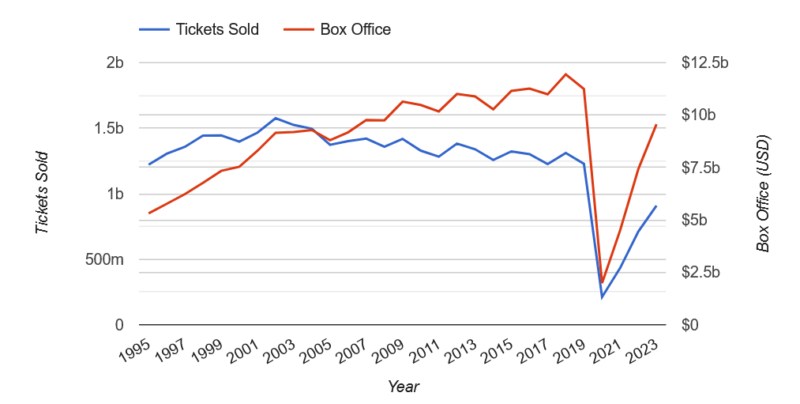Diversity Will Replace Your Beer, Too
Diversity means several things at once: loss of your culture as it expands to include other cultures, loss of voting majority which means new laws will steal from you, loss of sense of identity because now you are a shopping mall for the world, and loss of genetic integrity as outbreeding replaces you.
No sane person would select it, but democracy always does. Democracy means constant internal struggle for power, which in turn means that people come to hate their society, and therefore choose whatever is most destructive in order to obliterate others in the hope of outlasting them.
The voters cannot connect demographic change to how their society will be altered. Like most humans, they are solipsists and therefore, do not believe that the world will be fundamentally different no matter what they do than it was when they were early teens.
This primal fallacy animates all normie thinking. They are interested ultimately in bourgeois subsidized anarchy to further their own individualism, so they do not think about intangibles like history, continuity, culture, genetics, and purpose. They are hand-to-mouth me-firsters.
Ironically, diversity eventually begins to hit them where it is inconvenient, starting with the loss of products that cater to their audience:
As more Latino and Hispanic drinkers have reached legal drinking age, their preferences have shifted the overall mix of beer that’s selling in the United States. The country’s growing Hispanic population has boosted Modelo’s growth.
Bud Light got killed off because after spending tens of millions on advertising to build up their brand as a celebration of rugged normal life, they in panic at their falling numbers adopted a neurotic millennial approach to branding that savaged their original marketing image.
No one will mourn the death of Bud Light. It was not good beer, nor was it cheap considered how much lower in quality it was than similarly-priced options, so it is not surprising that Coors and Miller are now surging ahead. But with the Hispanic population, Modelo got there first.
Perhaps Modelo deserves its success. Negra Modelo after all is a good beer, and Modelo Especial is a reasonable version of the American Adjunct Beer, so called because it uses cheap grains instead of barley for the bulk of its contents.
However, the fact remains that if this were an Anglo America, we would expect Coors or another brand from the past to take the center spot. With demographic shifts, that will not happen, and now America is branded in yet another way as being a Hispanic country with some Anglos that are going to be replaced.
Your media is busy trying to blame the internet for demographic change, for example the death of shopping malls over the past twenty years:
Crystal Mall’s cut-rate sales price shows how rapidly the value of America’s regional malls has deteriorated in recent years due to changing shopping habits, competition from other retail and the rise of online shopping.
People love to shop. However, they do not like to shop among the diversity. They prefer to hang out with their own people, which is why they are no longer going to malls where they encounter the diversity, but to niche stores that have their own parking lots and drive away the diversity.
A shopping mall makes sense when you still lived in WASP America and could drop off your kids for a few hours of food court, shopping, ice skating, borrowed cigarettes by the pay phones, and wandering around.
Now, your kids would be surrounded by hostile actors and influences, not to mention feeling completely alienated by the fact that no one looks like them. The White and whitish people fled to specialty stores.
It was too easy to blame Amazon, but there is no shortage of people shopping these days. However, they are not doing it at the big malls or any other place that draws the general public. The new rule is that unless the experience is managed, it is a threat.
Similarly, movie theater attendance has been declining since diversity kicked in big time after the Clinton years, starting in about 1998:
Why go to a movie theater to feel like an alien? Just buy a fifty-inch television, sound bar, and 4k Blu-Ray DVD player and enjoy theatrical comforts at home. As a bonus, you can buy snacks at Kroger for a fifth the price you would pay in a theater.
Moviegoers in the late 1990s and early 2000s complained loudly about people talking during movies and sometimes shouting at the screen. Different cultures have different rules, and different genetic groups have their own behaviors, not all of which are compatible.
Notice the box office went up while ticket sales went down, showing how much ticket prices rose during this time. Simultaneously the number of movies went down. Studios focused on big lowest common denominator blockbusters, which is why stuporhero movies became popular during this time.
Civilization needs a center. Not only culture, but what culture enables, which is discussion. When you share the same cultural tokens and the same genetic tendencies, it is easier to talk about just about anything, and so your civilization learns.
Lack of a center however kills civilizations:
Even when we attempt to avoid the reality of power, we are ruled by it, because our only method of abolishing power is to transfer it elsewhere. At that point, a struggle for power becomes a constant event, and in the effort to “win” everyone seems to forget that the goal of power is the thriving of the civilization.
As it turns out, this makes sense because human societies need centers:
There has to be a center because humanity is constituted through joint attention, and attention must be attention toward something, and if attention is joint that something must be at the convergence of the respective lines of vision of the attenders. The only way this object of attention can be held in place is if it is desired by all of those attending upon it, and the only way it can be desired rather than appropriated is if its appropriation is proscribed; and the only way its appropriation can be proscribed is if the participants on the scene constitute this proscription by offering signs to each other that they will suspend any attempt to appropriate the object. The source of the sign(s) offered must be a reversal of the movement towards the object, and this reversal must result from the fear of violence produced by this novel, collective, unconstrained rush toward the object.
Joint attention directs toward an object of power or a purpose to the society. That center must then be sacred, or defended by all, so that no one seizes it and uses it for their own ends. In turn, the center shapes how people think about their own lives, goals, and what behaviors they are willing to engage in.
With diversity as with equality, society lacks a center; its goal is its method, meaning that it applies equality in order to have equality and the same with diversity, and so it is caught in a feedback loop of always intensifying its drive toward an ideological extreme. This cuts reality out of the equation, essentially appropriating the center by replacing it with a simpler, more narrowly defined goal.
In addition, diversity creates a society of many groups, each of whom avoid appropriating their own center by attempting to appropriate the center of society as a whole. If they do not attempt to seize power, they have attempted to appropriate their own center by failing to act out its unstated goal, which is to have self-rule and dominion over all that is around them.
Not surprisingly, diversity destroys civilizations. This is not, as many surmise, through the bad behavior of a single group, but through the good behavior of every group, because since each group acts in its own interests alone, no two groups can have fully overlapping objectives, leading to unending conflict.
As Robert Putnam and others have pointed out, diversity destroys the center of civilization, social trust, and replaces it with atomization, a type of alienated retreat in which people become essentially tiny disconnected nations unto themselves.
The first casualty of diversity seems to be speech itself. Not just through the censorship that it requires as the voices noticing problems with diversity become louder, but the pidgin Leftspeak that becomes normally because it is politically uncontroversial.
A loss of language leads to lesser function of the civilization, its businesses, and its institutions. In order for people to tell each other what they need to know, societies require norms of behavior that reward honesty:
Most papers assume the existence of a truthful, forthcoming, and informative communication system; in this paper, we seek to explain how such a communication system could remain evolutionarily stable in the absence of exogenous pressures. Specifically, we present three conditions that together maintain both the truthfulness of the communication system and the prevalence of cooperation: individuals (1) use a norm that rewards the behaviors that it prescribes (an aligned norm), (2) can signal not only about the actions of other agents, but also about their truthfulness (by acting as third party observers to an interaction), and (3) make occasional mistakes, demonstrating how error can create stability by introducing diversity.
Their mention of “diversity” seems to be a stab at a keyword that is in fact the old adage “the exception reinforces the rule.” The more chaotic things get, the more people correct the chaos, because the exceptions show us why we had the rule in the first place.
Other necessities mentioned here however are essential: there must be an aligned norm and a truthfulness signal. Since norms and values of truth are relative to each ethnic group, these can only exist in a mono-ethnic population and do not exist in a multicultural one.
Not surprisingly, this leads to further atomization or the splintering off of people into their own little worlds, which deprives them of the conversation they need to feel a sense of positivity and well-being:
In three studies, participants (N1 = 347, N2 = 310, N3 = 250) were randomly assigned to engage in one of these communication episodes or behaviors and then completed end-of-day measures of well-being. Compared to participants in the control groups, participants engaging in candidate behaviors experienced increased well-being. MANCOVA results from all studies suggest the frequency of engaging in candidate behaviors was associated with increased well-being. A mini-meta-analysis found a weighted average effect size of d = 0.255. Results suggest that engaging in as little as one communication behavior with one friend in a day can improve daily well-being.
Diversity will kill your beer and eventually your civilization, but first it will isolate you completely, and there is only so much video you can watch or social media you can scroll before the loneliness catches up to you.
In the meantime Modelo, protecting from needing to engage in the latest diversity trend of transsexualism by its minority status, will continue surging ahead as a steady flow of immigrants from the third world transform America into a third world cultureless grey employment program.
Tags: bud light, conversation, diversity, language, modelo especial, multiculturalism, negra modelo, pidgin, truth











